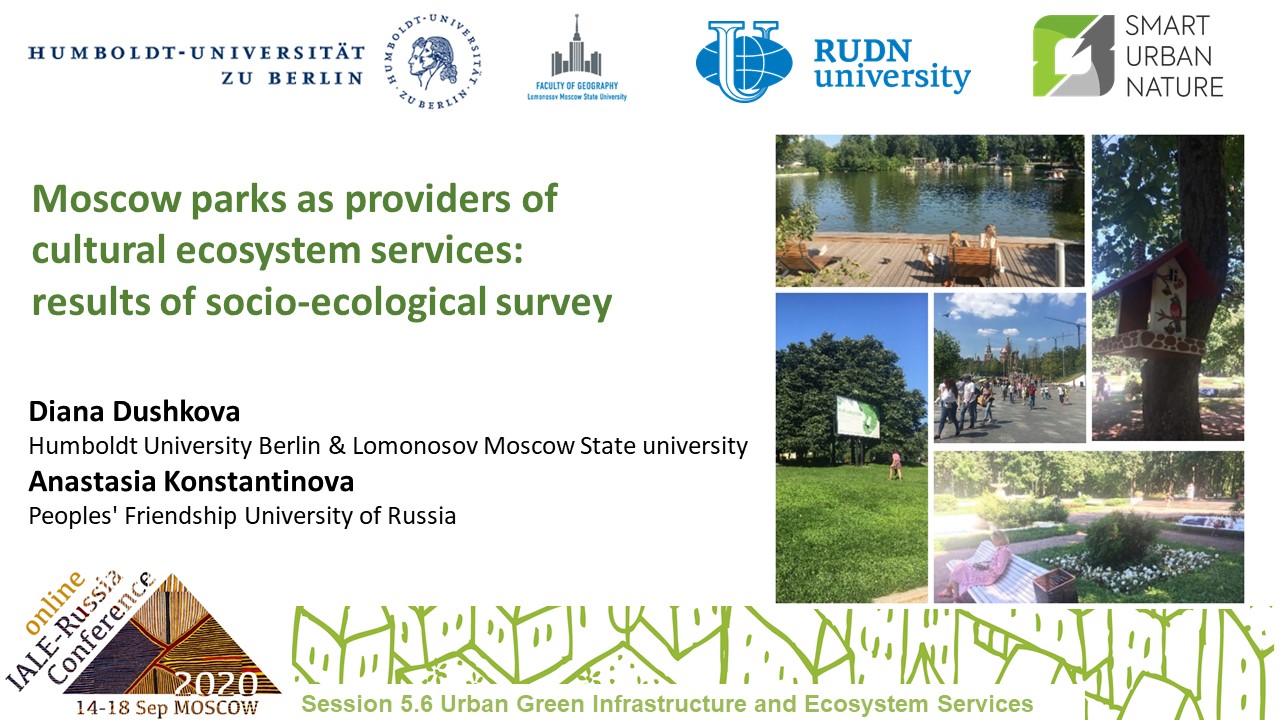On September 14-18, 2020 SUN Lab’s team represented by Anastasia Konstantinova and Victor Matasov took part in the 1st International conference «Landscape Science and Landscape Ecology: Considering Responses to Global Challenges» hosted by IALE-Russia and Lomonosov Moscow State University. Due to the restrictions induced by the Covid-19 pandemic the event took place online but still gathered almost 200 participants from Russia, Germany, Austria, Netherlands, Sweden, Switzerland, USA and many other countries.
The conference served as a platform for the knowledge exchange in the landscape spatial organization, land cover dynamics, changes in ecosystem functioning, landscape resilience to natural and man-made disasters, such as wildfires, floods, droughts, biodiversity loss and pathogen outbreaks. The special focus of the conference was also set on spatial sustainable landscape planning. For instance, there were organized fruitful panel discussions on how landscape science may address topics about land use efficiency, land sparing and sharing in the complex multifunctional land-use settings.
The program of the conference included 5 sections with more than 30 various sessions. Anastasia Konstantinova co-authored with Diana Dushkova (Humboldt University of Berlin) presented research on the human perception of the landscape “Moscow parks as providers of cultural ecosystem services: results of socio-ecological survey”. The study was focused on research of cultural ecosystem services (CES) provided by urban parks situated in the city center of Moscow. The social survey using interviewing on citizens’ perception of urban green spaces was used in order to reveal the preferences in recreation activities and frequency of park visits. Authors of the research discovered that location and accessibility of the park play an essential role for the visiting parks as well as provide the opportunity to socialize and feel a connection to the place of residence. Their comparative study showed that the use of CES is thereby both influenced by the demand side and by the supply side and thus the characteristics of the urban green infrastructure itself.
Another SUN Lab’s scientist Victor Matasov presented the results of his latest research “Socioecological Changes in Russian Forest-Steppe Agrolandscapes Since mid-19 century: Muraevnya Case Study”. This study dealt with the specificities of socioecological changes in land use, particularly on the border of present-day Ryazan and Lipetsk regions of Russia. The case was studied using an energy balance approach that aims to assess all of the processes within the ecosystem since every flow and mechanism regarding the ecosystem can be presented as an energy flow. Thus Dr Matasov identified that the spatial determinants and socio-economic drivers which led to the said mosaic have drastically changed due to the depopulation of rural areas and the transformations of agricultural technology. Viktor Matasov also acted as a moderator of two of the conference sessions.

